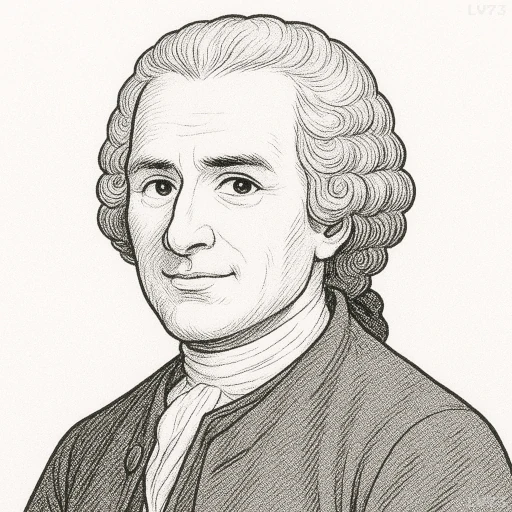“Remorse sleeps during prosperity but awakes bitter consciousness during adversity.”

- June 28, 1712 – July 2, 1778
- Born in Geneva
- Philosopher, political philosopher, writer, composer
table of contents
Quote
“Remorse sleeps during prosperity but awakes bitter consciousness during adversity.”
Explanation
In this quote, Jean-Jacques Rousseau reflects on the nature of remorse—the feeling of regret or guilt for one’s actions. He suggests that when things are going well in life, when individuals experience prosperity and success, they may be less attuned to their past mistakes or wrongdoings. Remorse, in this case, is “asleep” or inactive, as the individual is distracted by the comforts of good fortune. However, during times of adversity—when life becomes difficult, challenging, or filled with suffering—remorse is “awakened,” and the individual becomes more acutely aware of their past actions and decisions. Rousseau implies that hardships bring a heightened self-awareness, forcing individuals to confront their failures and guilt that they may have ignored during times of prosperity.
Historically, Rousseau’s views on remorse tie into his broader philosophy of human nature and society. He believed that prosperity and comfort often mask the more profound truths about oneself, leading people to become disconnected from their moral or ethical compass. In contrast, during times of hardship or struggle, individuals are more likely to reflect on their actions and face the moral consequences of their behavior. Rousseau’s idea is also linked to his views on self-awareness and the importance of facing one’s truths—that it is often only through adversity that people are forced to look inward and grapple with the realities of their lives and choices.
In modern times, this quote resonates with the way emotional reflection often occurs during times of crisis or personal struggle. When life is smooth and easy, people may overlook their own flaws, ethical lapses, or mistakes, but when faced with adversity—whether in the form of personal loss, failure, or hardship—individuals often experience self-examination and regret. Rousseau’s insight encourages us to be aware that times of prosperity can cloud our moral vision, and it is only in moments of difficulty that we may come face-to-face with our deeper, more uncomfortable truths. It serves as a reminder that growth and moral clarity often come through the process of confronting our actions during moments of struggle.
Would you like to share your impressions or related stories about this quote in the comments section?




